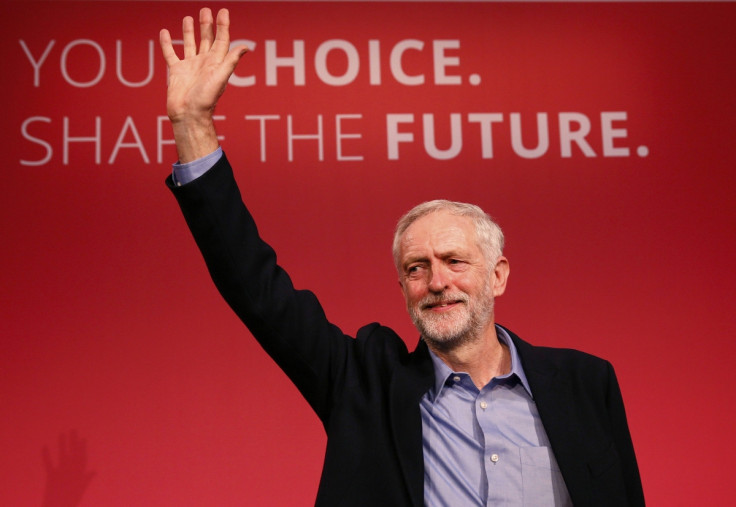James Bloodworth: Blame the Blairites for the rise of new Labour leader Jeremy Corbyn

Jeremy Corbyn's victory in the Labour leadership election was not down to his riding of a growing "anti-politics" wave, as has been suggested. No, Corbyn won the Labour leadership election because he was the only candidate willing to articulate some of the ideas which get Labour activists out of bed in the morning.
Corbyn was in fact the politics candidate. He talked about Labour principles such as reducing inequality and furthering the cause of peace while his Labour rivals got bogged down in technocratic waffle.
Reducing the gap between rich and poor will take more than standing on a milk crate and shouting 'tax the rich' into a megaphone.
And so we get a little closer to a genuine explanation for the rise of unassuming Jeremy Corbyn: what has really transformed the Corbynistas from a placard-wielding awkward squad into serious contenders for power is a smouldering resentment at some of the compromises of the New Labour years.
Under Tony Blair, Gordon Brown and even to some extent Ed Miliband, Labour suffered from what the American socialist Irving Howe once called a "failure to distinguish between expediency within the framework of principle and expediency that undermines and rots any principle".
In other words, electoral success often meant that New Labour capitulated ground to the Tories when it probably did not need to – it was after all New Labour, rather than the Conservatives, who deregulated the financial sector and built up a £240bn black hole through the use of PFI (private finance initiative) schemes.
Similarly, the Iraq war, an unwillingness to properly regulate the City and the recent equivocation by the leadership candidates (apart from Corbyn) over cuts to child benefit may all be classed as expediencies which have "undermined and rotted" Labour principles – and thus sullied mainstream Labour politicians in the eyes of party members.
To get some further idea as to why the New Labour project is increasingly treated with distain by Labour party members, consider the steady capitulation to the right by Labour "modernisers" in more recent times: in less than 20 years Blairites have gone from espousing the notion of an historic "third way" between capitalism and socialism to endorsing the toughest deficit reduction plan ever enacted in peacetime Britain.
And deficit reduction does not simply refer to figures on a spreadsheet; over the decade to 2020 an additional 800,000 children are expected to be living in poverty – just under one in four British children – while over the same period an extra 1.5 million working age adults are likely to fall into poverty.
Sensible people recognise that it is impossible to win power and remain ideologically pure; but presumably one can win elections without being "incredibly relaxed" about the filthy rich or lying about weapons of mass destruction. If a blithe acceptance of this state of affairs is the new centre ground (and, yes, it does move) then one ought not to be surprised that Labour activists would rather "swim through their own vomit", as the new shadow chancellor John McDonnell has memorably put it, than endorse this direction of travel.
For most of the Labour party's history the ideas of Jeremy Corbyn (foreign policy aside) would have been considered relatively mainstream interpretations of democratic socialism. Yes, times change and thus it is important that politicians' thinking evolves; but for today's Labour pragmatists even the most progressive achievements of New Labour are suddenly considered too left-wing and "spendthrift".
Jeremy Corbyn will not usher in a "new politics" and his socialism is more a profession of faith, or a historical identification with one side in the class struggle, than a blueprint for a better society.
Reducing the gap between rich and poor will take more than standing on a milk crate and shouting "tax the rich" into a megaphone. Any incipient socialist internationalism is already compromised by the fact that Corbyn believes in forging alliances with groups like Hamas and Hezbollah – apparently kosher to the Corbynistas as long as their man comes out firmly against austerity for British people. It feels rather odd having to say something so obvious, but I am going to say it anyway: no internationalist should ever appear on Press TV or Russia Today, nor share platforms with Holocaust deniers.
Yet, whereas Jeremy Corbyn's supporters are willing to overlook many of his unpleasant associations, too often his critics see virtually nothing wrong in modern Britain. Not only have they made their peace with capitalism, but they are more likely to go into a frenzy over the latest identity politics brouhaha than worry about nearly a million children reduced to poverty.
Jeremy Corbyn has won the support of so many because he has retained the ability to get angry about a damning state of affairs when he sees one – at least when it doesn't involve an anti-American autocrat.
Corbyn's liberal opponents on the other hand, both in the Labour party as well as outside it in the commentariat, have made their peace with free market capitalism and are shocked to find that Jeremy Corbyn isn't the only one who rejects the notion that there is something natural about bleeding the poor to pay for the blunders of the banks.
Blame the Blairites for the rise of Jeremy Corbyn, for it was they who made pragmatism look so sordid.
© Copyright IBTimes 2025. All rights reserved.






















